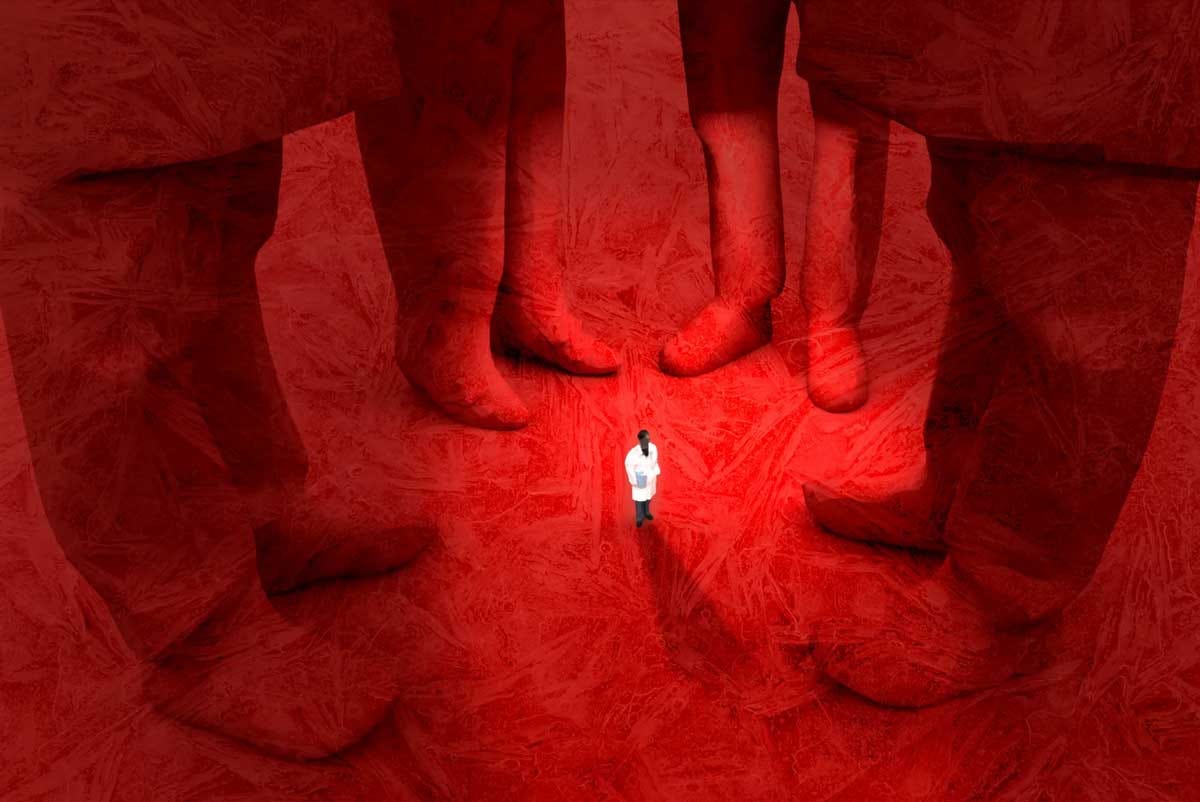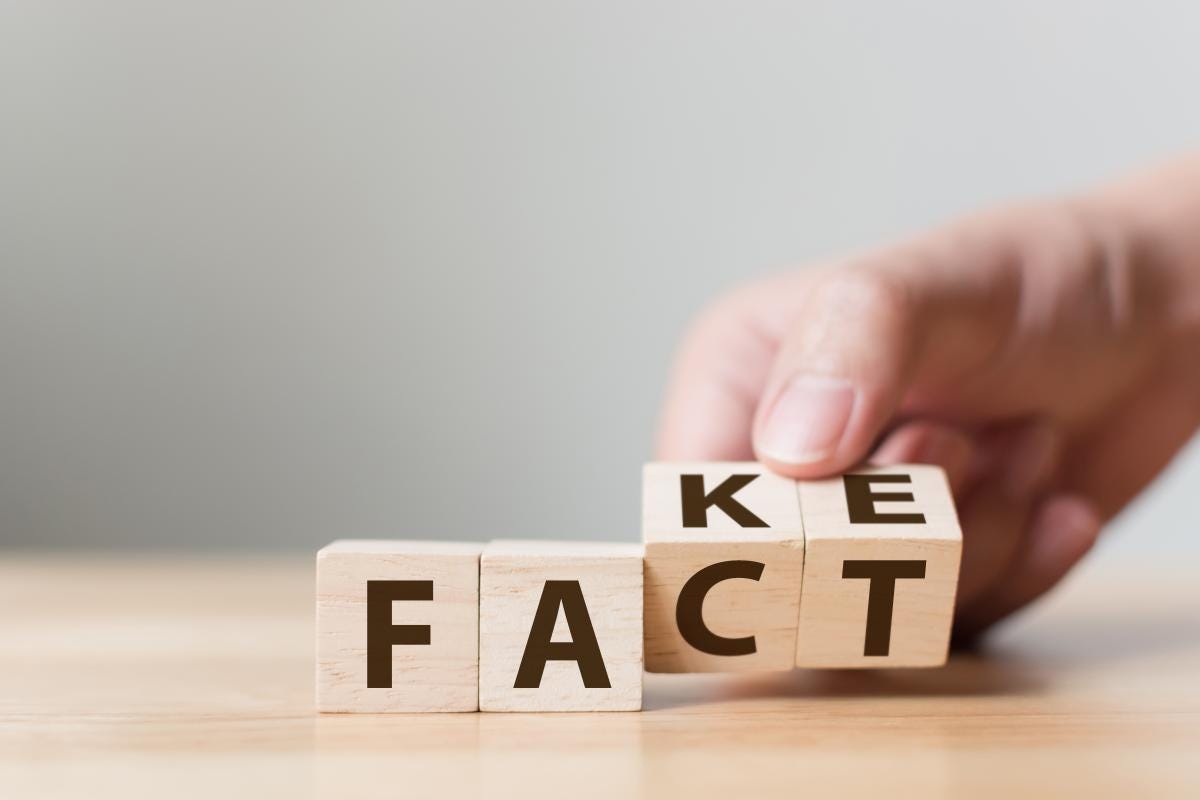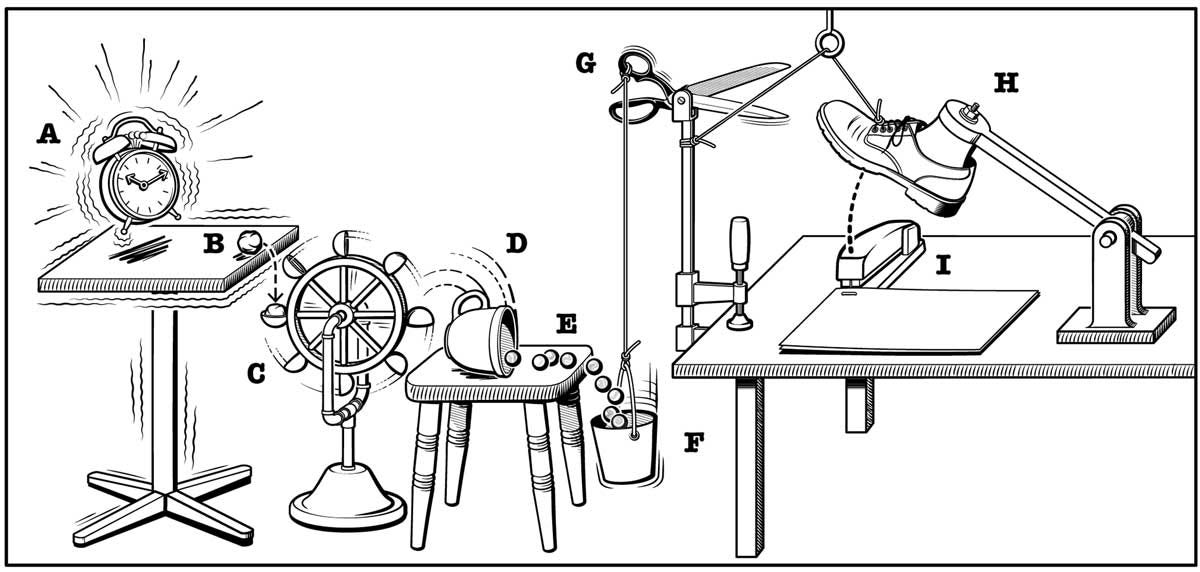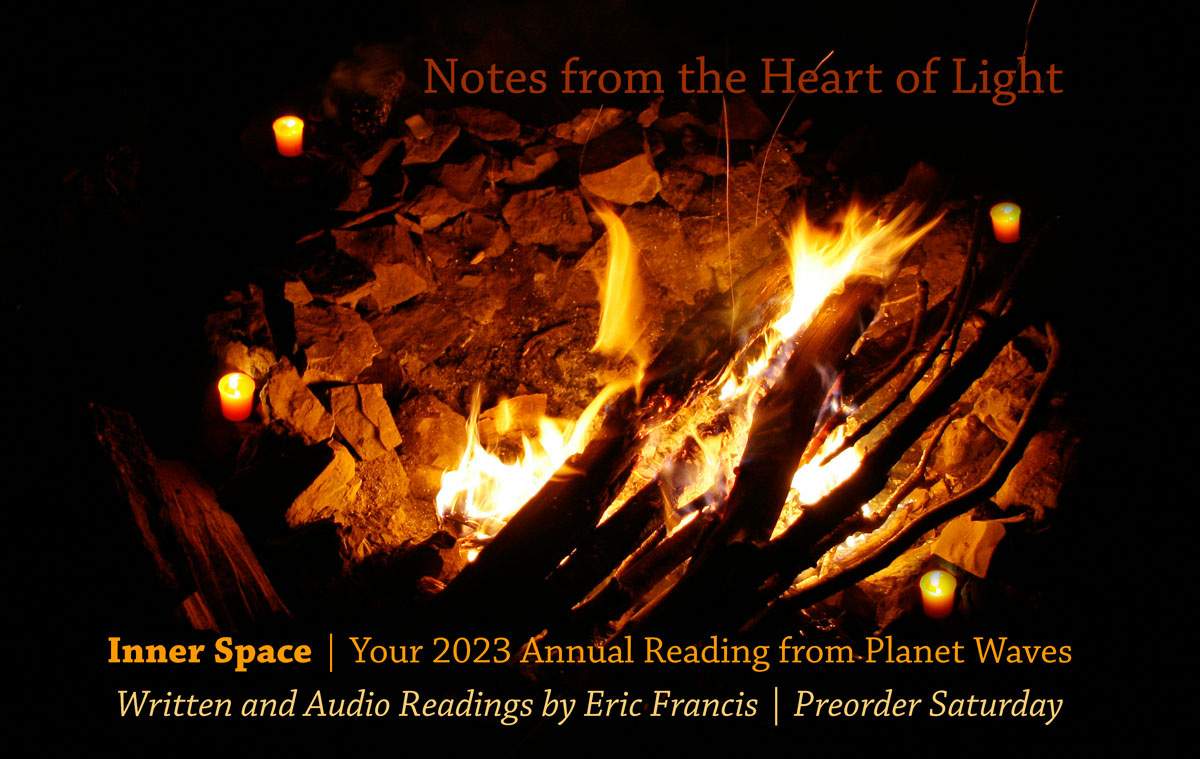The Fog You Cannot See
The good thing about fog is that you usually know it's there. But what if there was a kind of fog you could not see? That is Mars square Neptune.
Link to the Weekly Horoscope — all readers may click through.
Dear Friend and Reader:
IMAGINE YOU ARE DRIVING A CAR and suddenly the road is shrouded in fog. Any meekly experienced driver knows to slow down.
A more experienced driver knows not to follow the car in front of them, but rather to look for road markers (such as the white stripe on the right side of the road) that indicate that you are actually on the highway and in your lane.
You may notice that your high-beams make it harder to see ahead of you, as the light is reflected back in your face.
And a truly experienced driver knows to look for a safe place to stop and wait until any extremely unsafe conditions change.
Now imagine if there was a fog you could not see — a transparent fog. For example, you think you're looking at a real scene and seeing it accurately, but it's distorted. Objects are concealed. some things that appear to be there are not.
Yet there's no mist sliding around the atmosphere to remind you of that fact. As treacherous as fog can be, at least you know you're in it, and can adjust accordingly.
When you cannot see the fog, you risk discovering it's there by driving into something, or going off the road. Fortunately, astrology is here to remind us of the conditions we are in.
Before we get there, I will say again that over the past three years, most people have displayed a stunning lack of discernment that is genuinely self-destructive, swallowing the claims of so-called experts without chewing or even sniffing them first. Take this whole article as a caution against doing that again — in my estimation, we are being set up for more incidents like we witnessed in March 2020.
Most people have no prearranged way to determine that they do not know something they think they know. We are in a time when people with no knowledge or experience consider themselves experts, or are even held out to the public as experts. Worse, we are in a time when many people loaded with credentials are taken for their word, with no basis to the claims they make.

False Clarity: Mars Square Neptune
The above scenario is my primary interpretation of Mars square Neptune, an aspect that will be with us through March. No aspect says "know when you don't know" like this one. (Mercury square Neptune is a close second. Squares to Neptune are slippery.)
The dates of exact contact are Oct. 12, Nov. 19 and March 14, 2023. Between now and then, the aspect will be in effect due to the fact that Mars really never gets so far from Neptune, and because Neptune has a very wide orb, and because there are three iterations. That makes it one continuous event.
Most people have no prearranged way to determine that they do not know something they think they know. We are in a time when people with no knowledge or experience consider themselves experts, or are even held out to the public as experts. Worse, we are in a time when many people loaded with credentials are taken for their word, when with no basis to the claims they make.
The result is often proceeding through life on assumptions and prejudices rather than grounded knowledge. And we wonder why so much goes wrong. Fortunately, there are many ways to address this.
With Mars square Neptune (and Mars about to station retrograde, complicates matters), we have the problem of false clarity: thinking you know when you do not.
The only way around this is to constantly ask yourself: how do I know this? To what source to I attribute this fact? You cannot be too granular, or too broad in your scope.
The other thing you cannot be is lazy, because to constantly question what you believe takes energy. And it requires you to be in a more or less constant state of discovering that you didn't really know something that you thought you did. It's important to verify what you think you know the best, as well as topics you have no special knowledge of.
The process of checking the sources of the things you believe may lead to wanting better ones, and working out inconsistencies between them. To establish a "final truth" is confusing and for many matters, impossible. More appropriate is to determine which way the evidence leans.

The Fact Checking Questions
Here is the question of actual fact-checking: what is the attribution of this fact? The second question is, is that a good source? And then: what do other sources say? Fact checking is not about establishing the truth, or not exactly. It's about getting as close to it as you can to reality, and eliminating various forms of bias.
First and foremost, fact-checking is about identifying the source of information. In personal life, many sources are things like your parents, your siblings, your friends, your teachers and professors, your minister, summer camp counselors, scout leaders and so on. Most of these are people who had authority in your life, but who are not actually authoritative. But we take what they say as firm truth — often having learned it as a young child.
The process of checking the sources of the things you believe may lead to wanting better ones, and working out inconsistencies between them. To establish a "final truth" is confusing and for many matters, impossible. More appropriate is to determine which way the evidence leans. This is the standard for a civil (rather than criminal) jury: what is the preponderance of the evidence? This can only be determined after a deep evaluation of several sides to any issue — and that is a useful tool.
Nearly everyone finds the process of getting closer to reality destabilizing and potentially offensive; but it's how you learn how to be correct — and how not to be ignorant. We presume experts just know things. Offer some extra respect to the expert who says, "I don't know; I will have to get back to you on that."
Finding out anything meaningful can take time. Yes, some matters can be sorted out in an hour. Others might take a year, and some investigations can take five years. It helps to have your skills honed and ready for action — which includes setting aside attachments to being right at the outset of any inquiry.
It's also good to know what does not automatically constitute truth: that which offends you, that which makes you afraid, what you already agree with, what sounds good, what comes from someone whose track record you have not verified, and what you face consequences for if you do not accept.
Because Mars is the planet of desire, it represents what you may want. Yet square Neptune, and when retrograde, represents a question: Do I want this? There are few things less pragmatic than ending up fully committed to what you don't want.

The Practicality Issue
Mars square Neptune has an issue with practicality. It would seem on one level to be boldly visionary, except for the part about getting things right, and getting things done. If you have this aspect in your natal chart, you will need to look for the practical side of your nature elsewhere. You may have one, though it's not the product of this aspect.
Time management is a challenge; staying on budget is a challenge; and emotional impulses are a challenge; relating to others in an emotionally regulated way can be a concern. All of these affect the practical matter of getting things done.
Since Mars is the most important planet related to money, consider what might happen when its judgment is compromised. Mars is about the setting and meeting of goals of all kinds, and Neptune at odds with it can confuse and diffuse the ability to understand what you're trying to do.
So the fact-checking questions at decision time are, what am I doing, why am I doing it, and does this align with my wider goal? Do my actions align with the goals of the people around me?
Because Mars is the planet of desire, it represents what you may want. Yet square Neptune, and when retrograde, represents a question: Do I want this? There are few things less pragmatic than ending up fully committed to what you don't want.
Mars square Neptune requires a lot of sorting out. That is a process of deciding what you want and what you do not. What is the basis of your sorting out? It might start with something like, "I am deciding based on understanding what helps me and what hurts me." That works pretty good, and is the basis of the "period of sorting out" in A Course in Miracles.
Denial and deception cause chaos. It may seem like the truth will unravel one's life, though that's really about the house of cards of an existence that is held together by various deceptions.

Commitment to Truth
Truth is more of an orientation than a thing. We think of it as a final outcome rather than a mode of travel. It is a tropism (like plants seeking water is aquatropism, or reaching for sunlight is heliotropism). For those who have it, it's an innate instinct.
There are people who feel that the truth is inconvenient. Others think it's threatening. How many people have you met who have an actual commitment to both knowing and living the truth, by which I mean their sincere personal best understanding of life?
This is especially a factor in relationships, where it is seen as acceptable, necessary or even compassionate to deceive others. To do this, self-deception is necessary.
And when it comes to you doing the mendacity that is so often considered a necessary part of relationships, there is the fear and the risk of everything falling apart. That tends to be enough motivation to not address one's deeper concerns — or even immediate ones.
Denial and deception cause chaos. It may seem like the truth will unravel one's life, though that's really about the house of cards of an existence that is held together by various deceptions.
This is also a fact of our society: much that we experience is the result of the lies that bind. We are not doomed to this fate, though it will take determination and vision to get beyond it.
We could list a whole collection of ego defenses that block the learning process, though what would subvert them all is simply wanting to know and understand, because it is helpful to do so.

Differences in Approaches to Learning
The issue of false clarity may come down to differences in approaches to learning. Most of school is structured on the thought process "we are telling you what is right." There is little to no discovery in most educational experiences. The resulting approach to life would seem to omit the very essence of learning.
As part of a discovery approach rather than rote approach to learning, students get the idea that the truth of a matter is something they want, not something to avoid. It is its own reward. They also learn that being wrong is a positive thing in that it leads to figuring out what is true.
We could list a whole collection of ego defenses that block the learning process, though what would subvert them all is simply wanting to know and understand, because it is helpful to do so.
As we drive through the fog we cannot see, it will be wise to remember that it is there, and that it conceals something that we can in fact perceive if we want to. Where Mars is involved, matters of wanting are always the question.
So slow down, turn off the high beams, stop if you have to — and figure out what you want.
Faithfully,







So foggy in the Aussie bush this morning. Perfect essay to receive and read over the first cup of tea! Art imitates life. 🤣